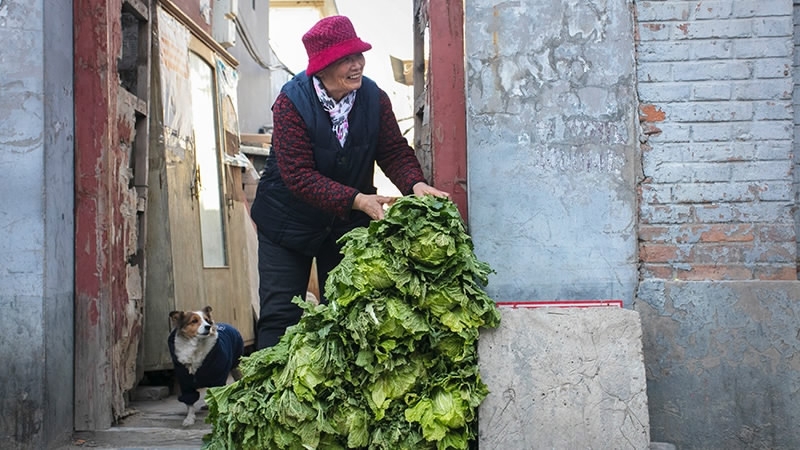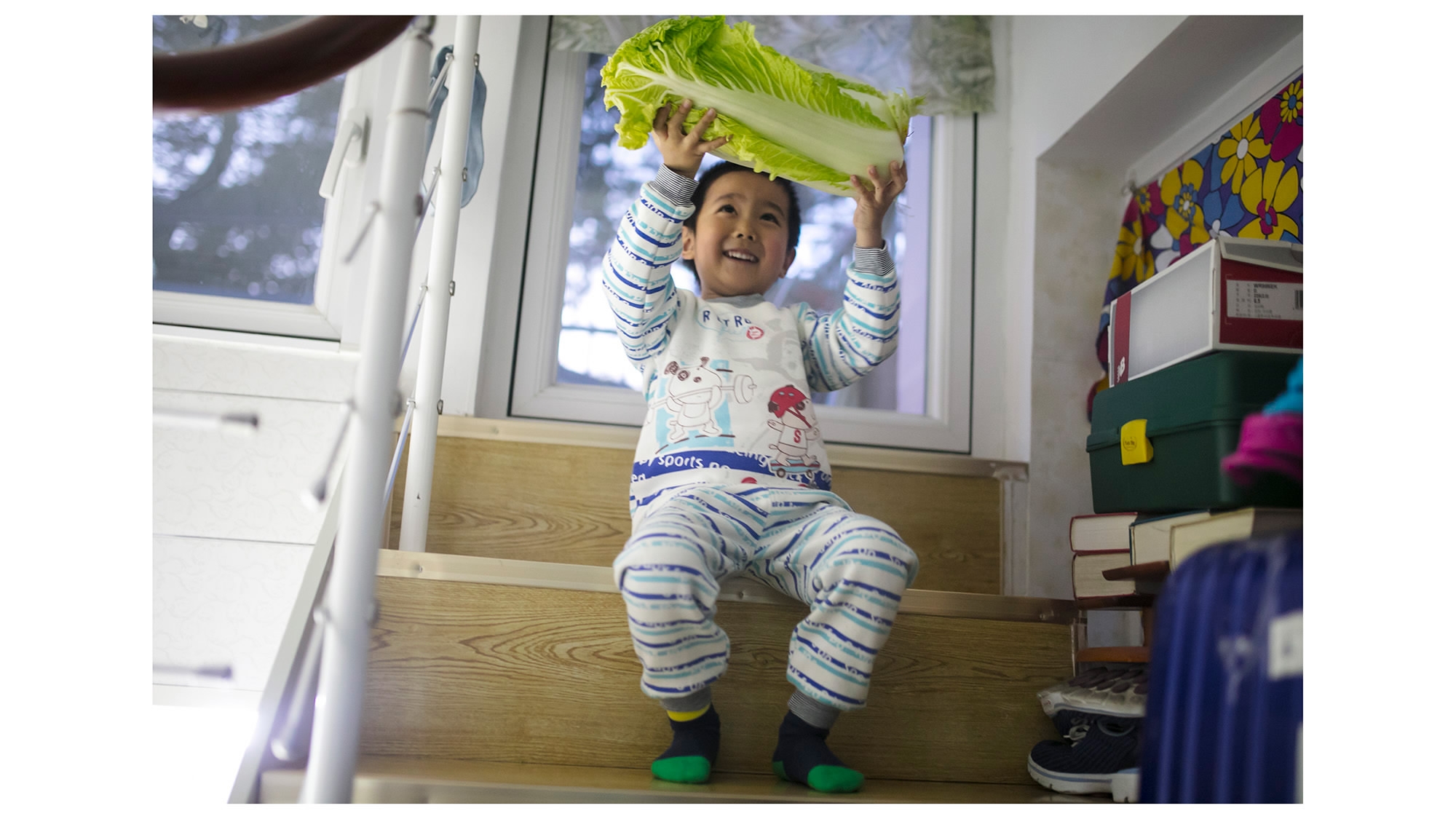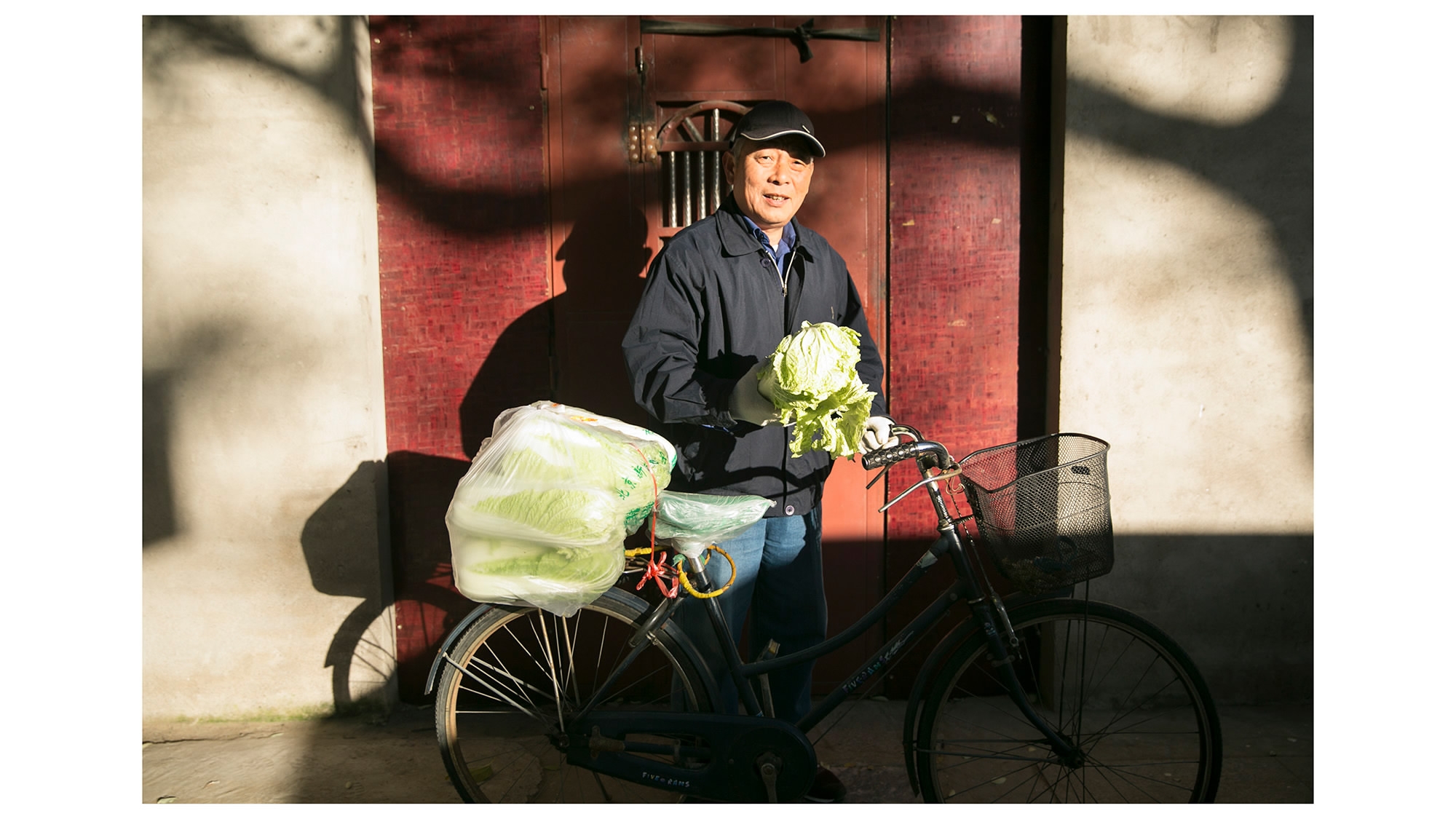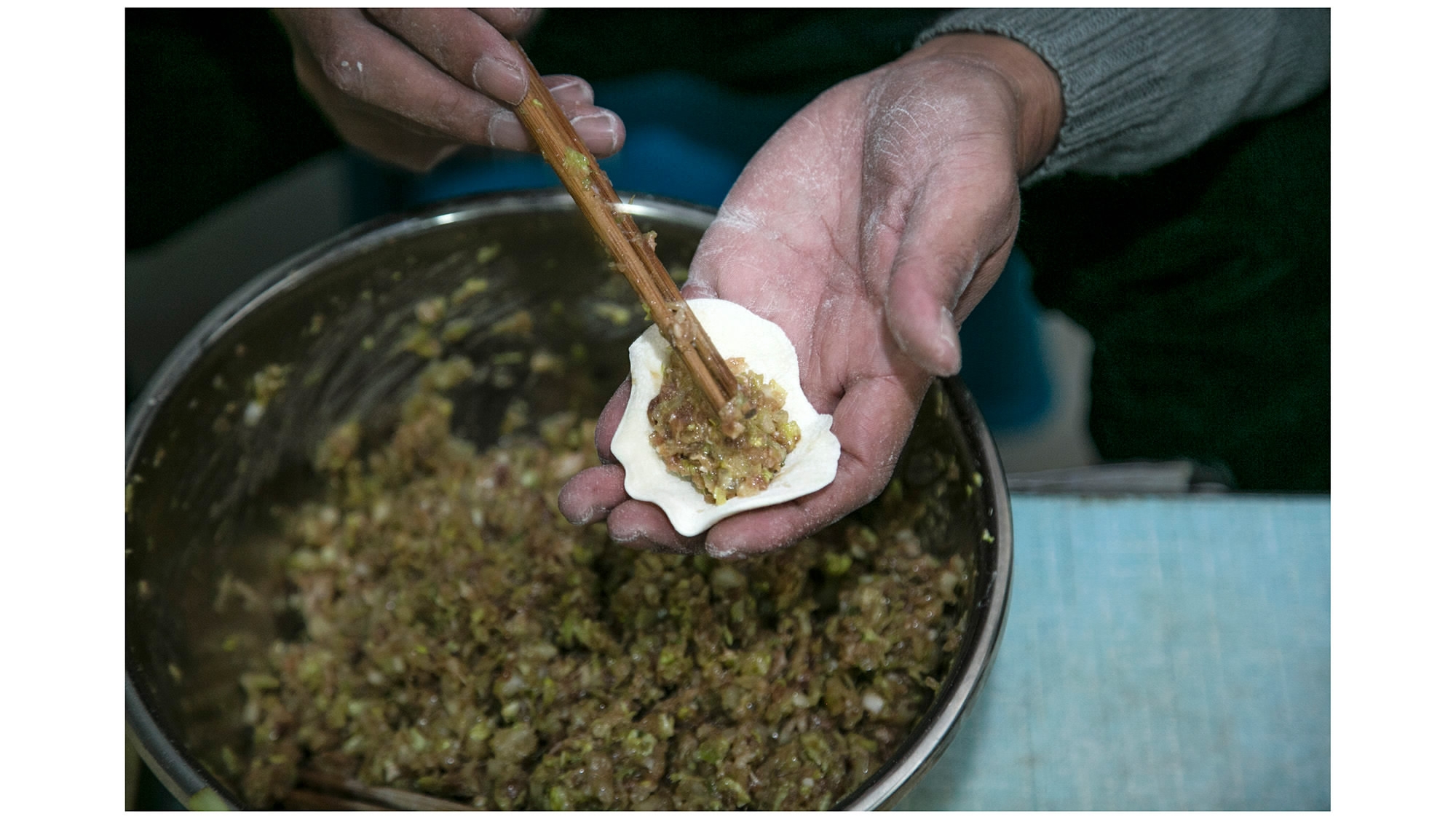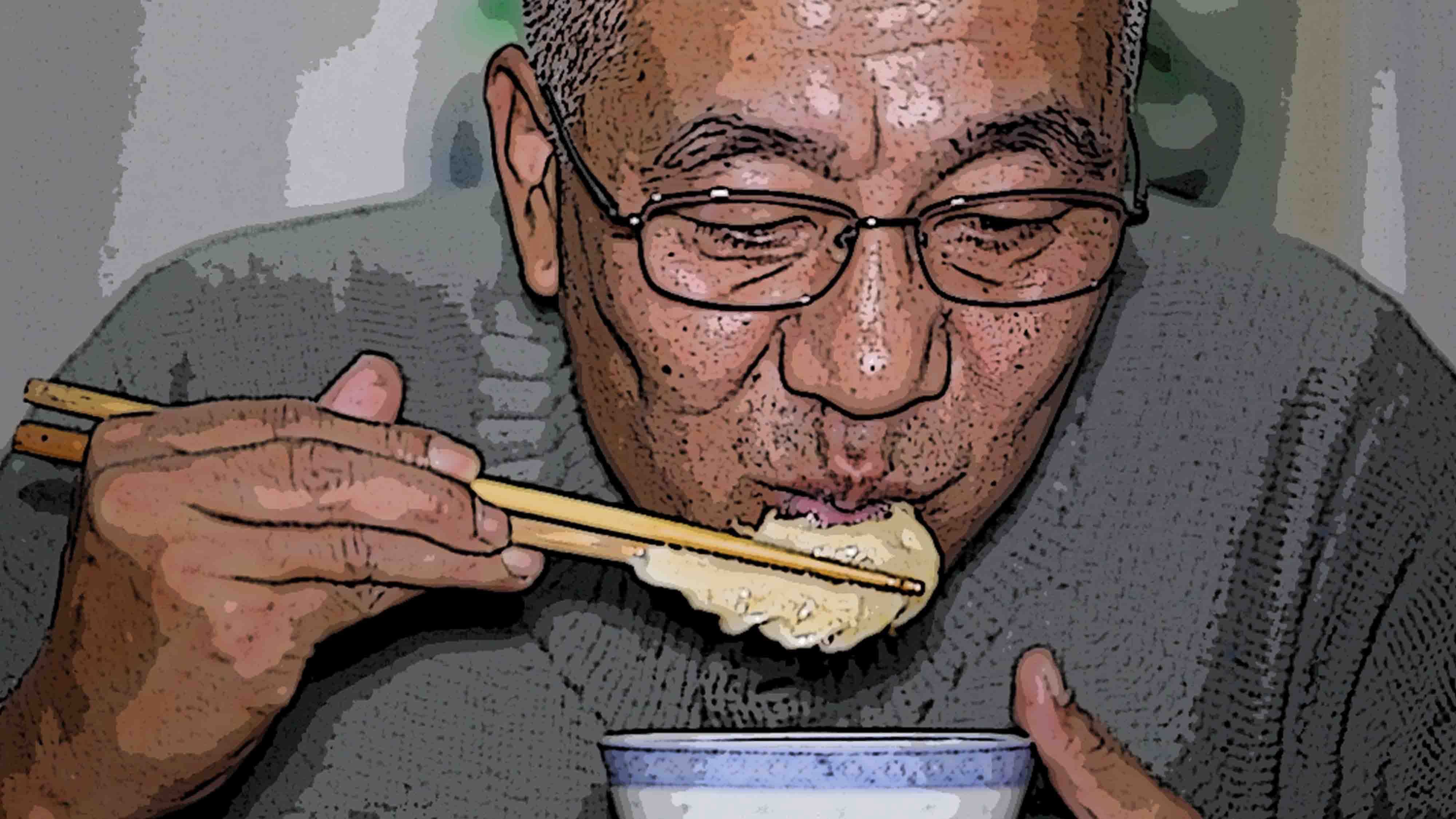As winter comes, Dabaicai, or Chinese cabbage, are seen piled up in the sidewalks and alleys in Beijing. Storing up cabbage before the cold weather is an annual tradition for the northerners, especially after they’ve experienced the hungry winters of the 1950s and '60s.
Portrait: I, Cabbage
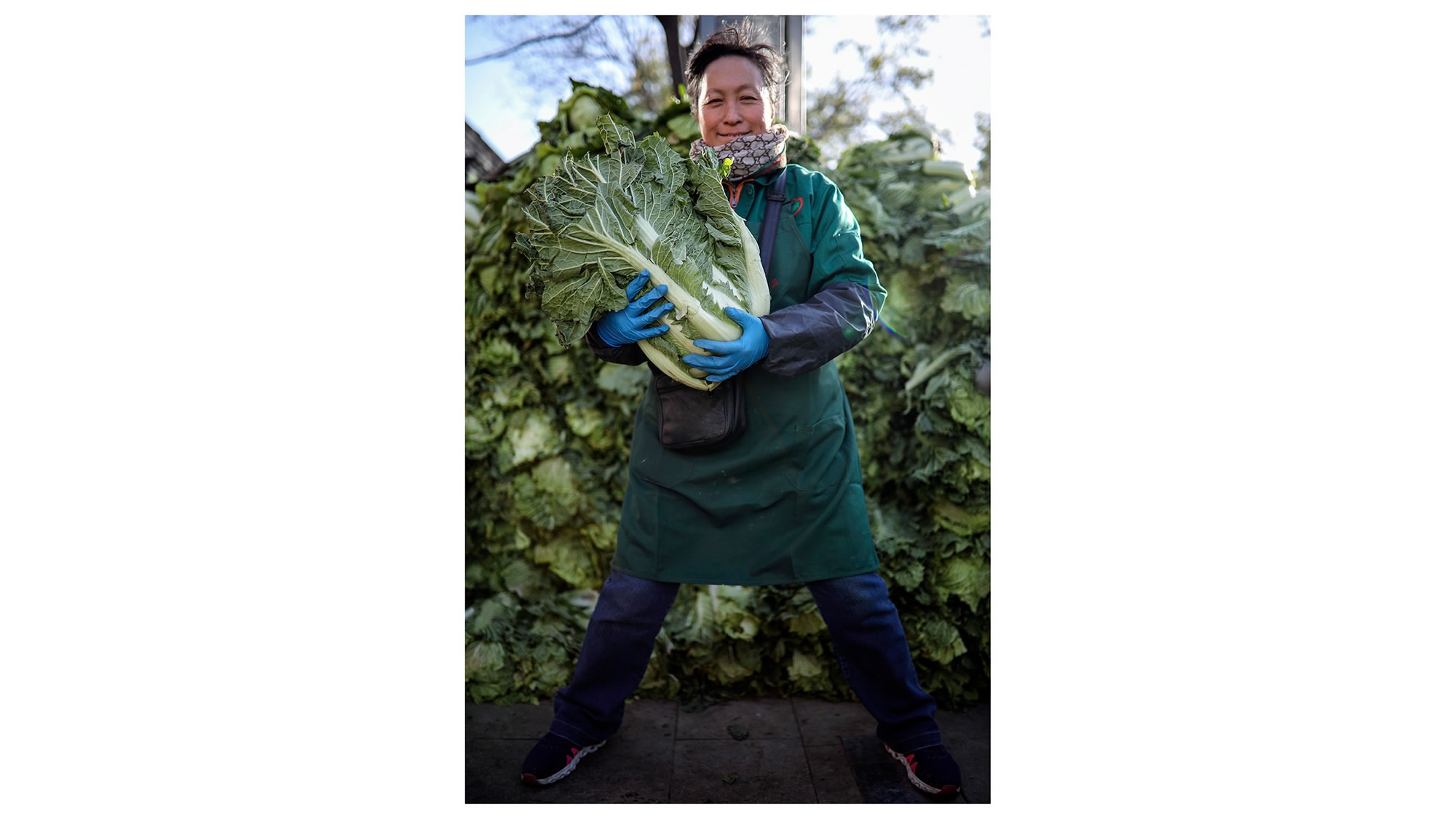
Wang Ruimei, local shopping mall worker
Wang Ruimei, local shopping mall worker
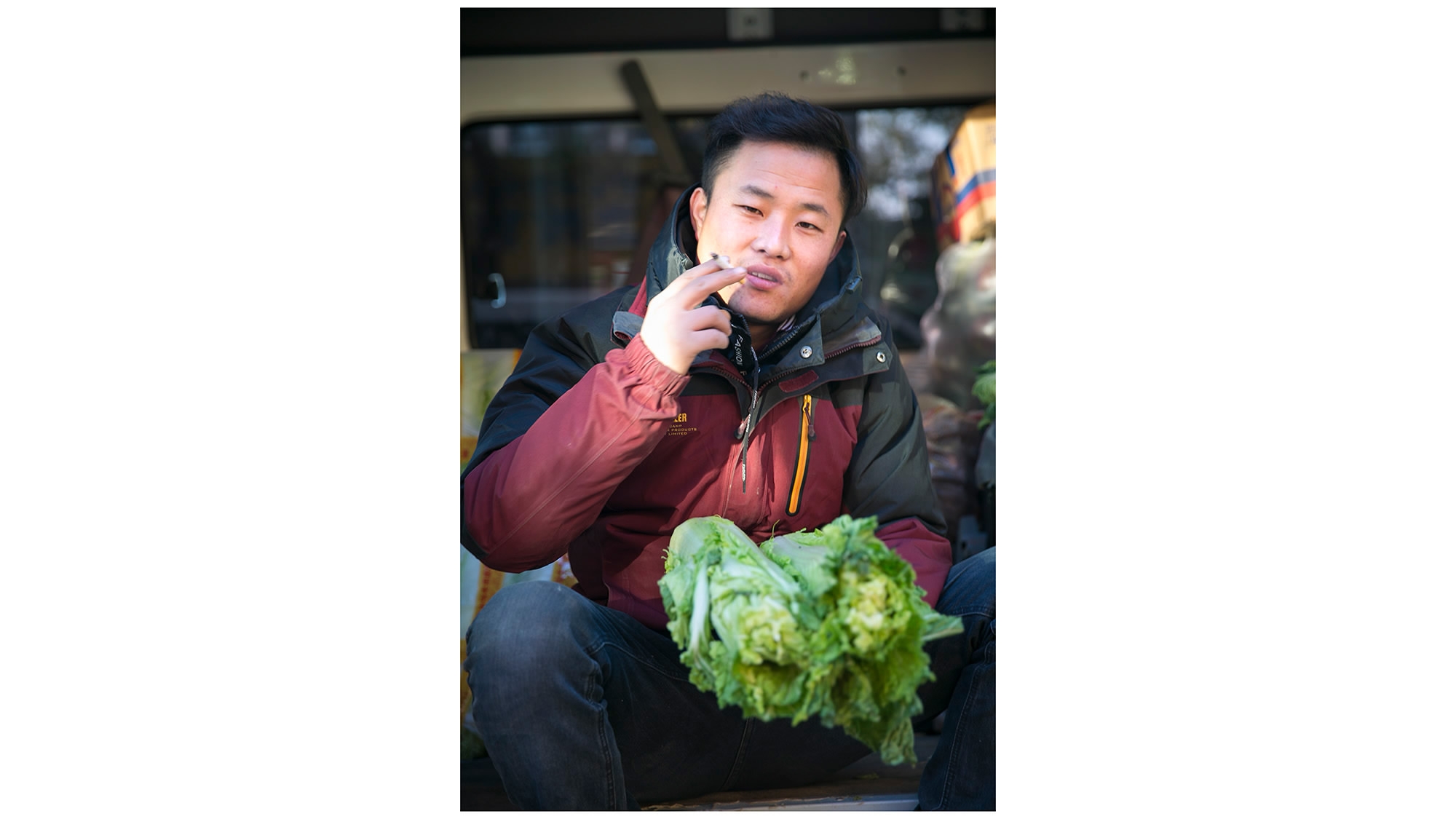
Chi Wenqiang, vegetable shop worker
Chi Wenqiang, vegetable shop worker
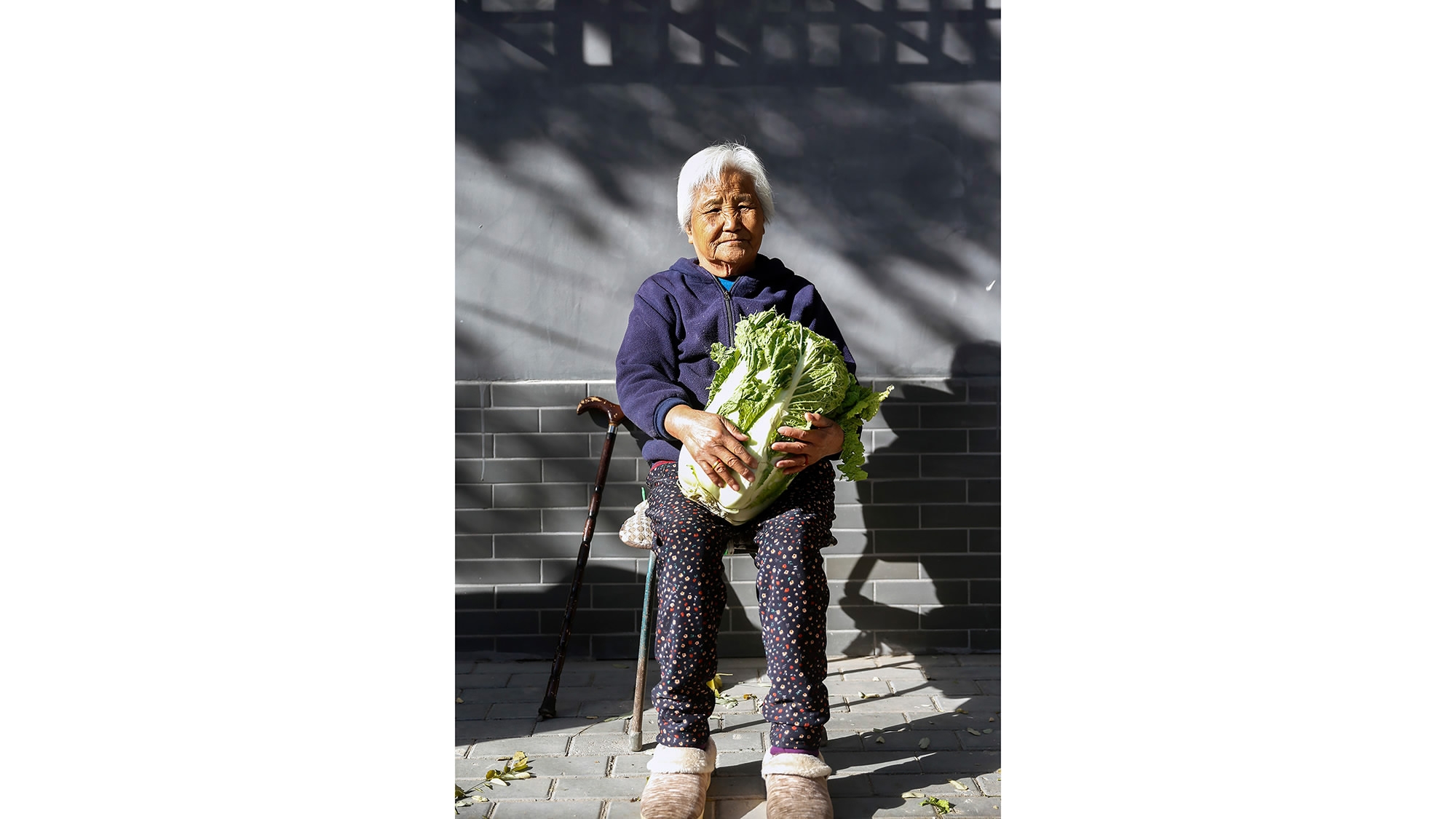
Grandma Zhang, local Beijinger
Grandma Zhang, local Beijinger
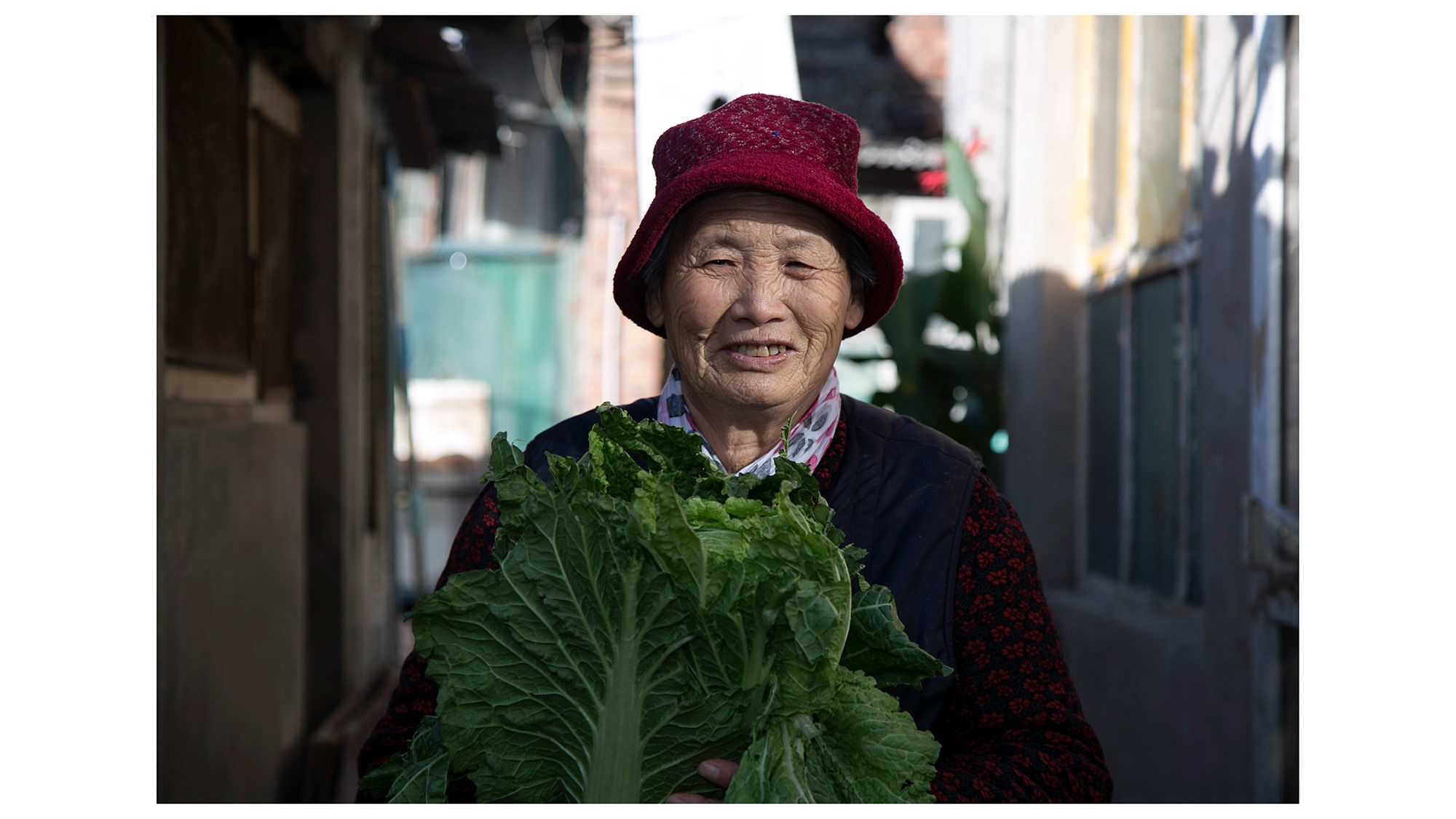
Grandma Lu, local Beijinger
Grandma Lu, local Beijinger
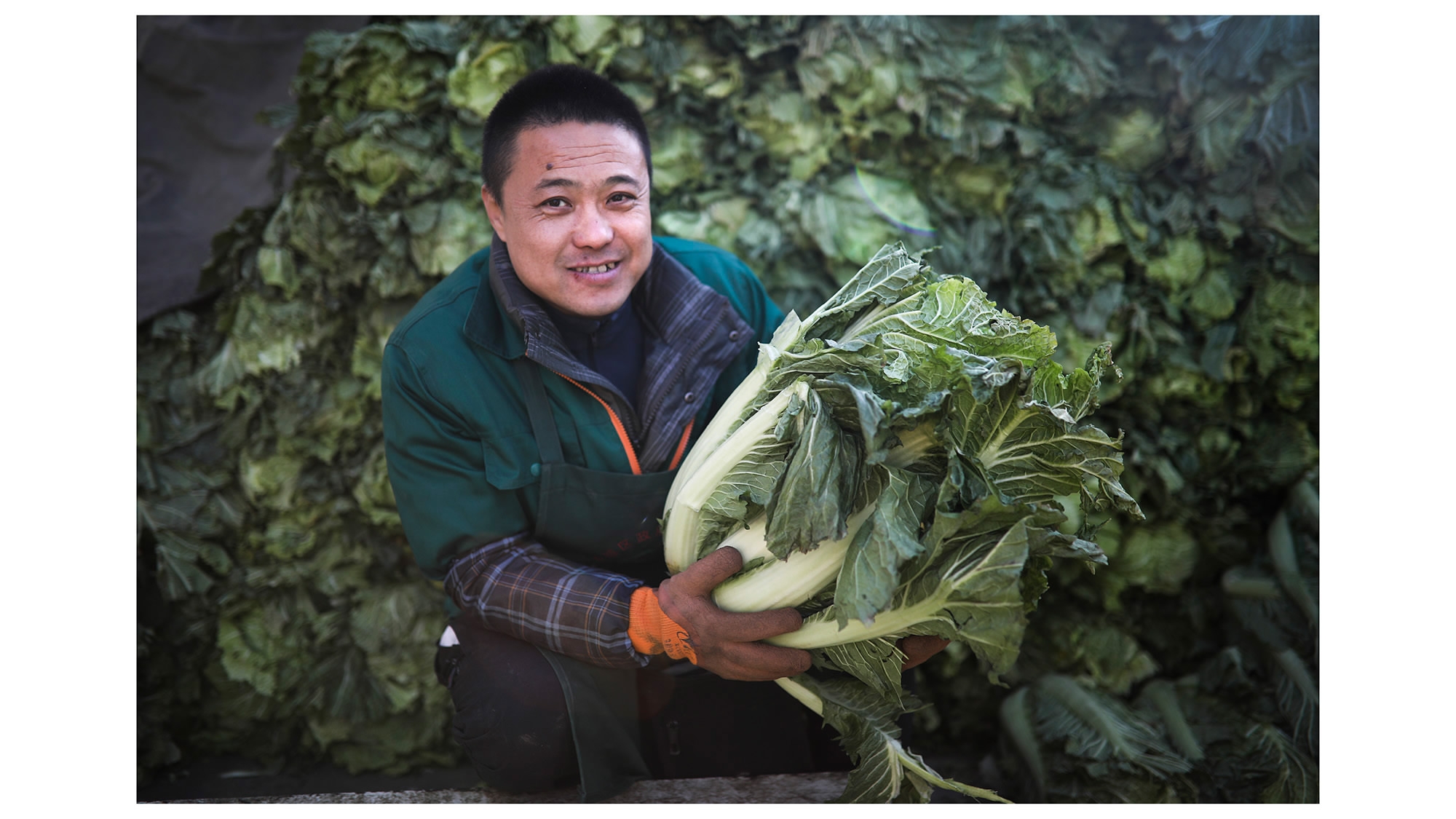
A local shopping mall worker
A local shopping mall worker
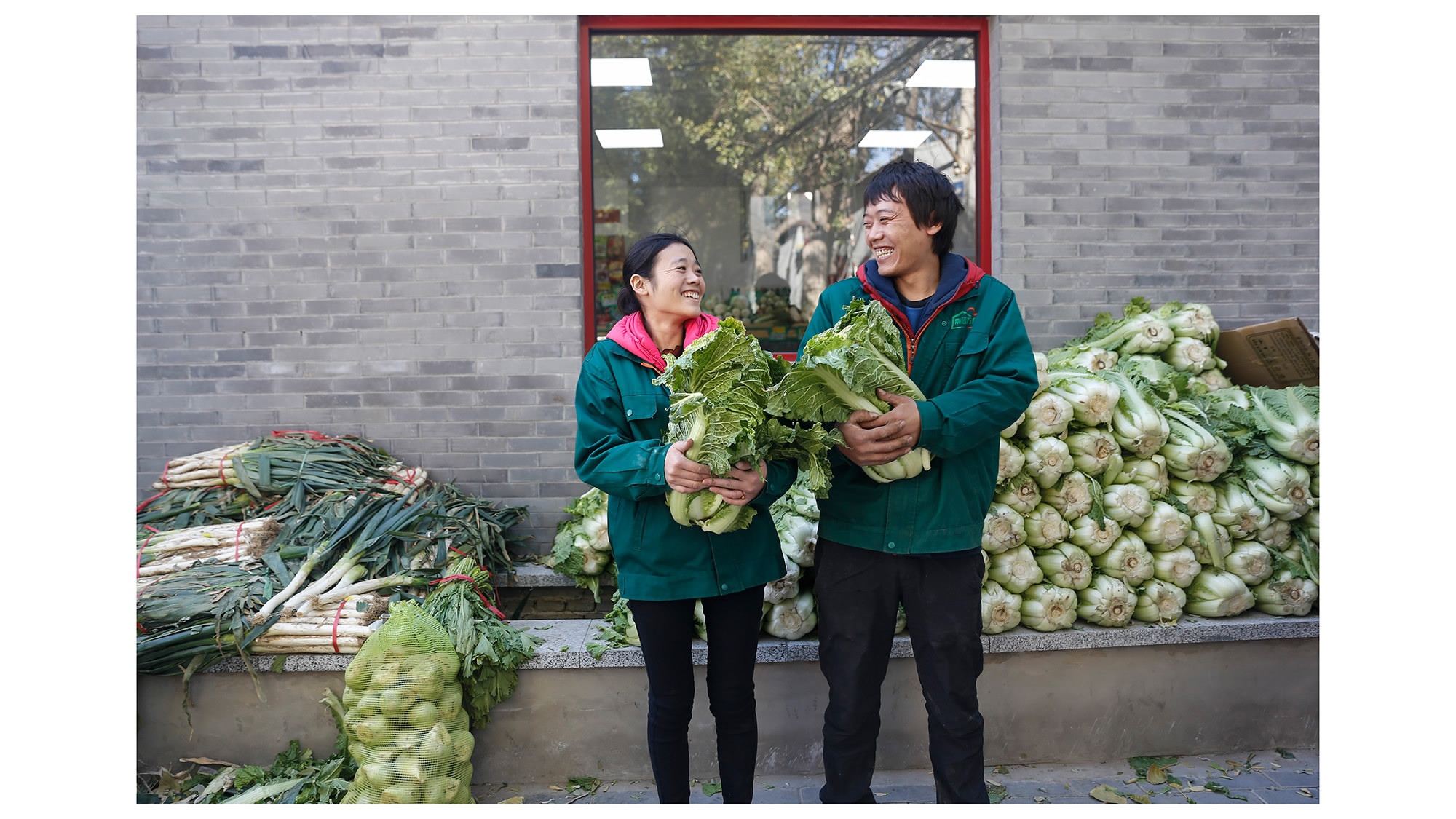
A couple selling Dabaicai
A couple selling Dabaicai
Photo story: From Suburb to City
From the distant suburb to the center of the city, many families still store Chinese cabbage in the cold days, keeping the old tradition alive.
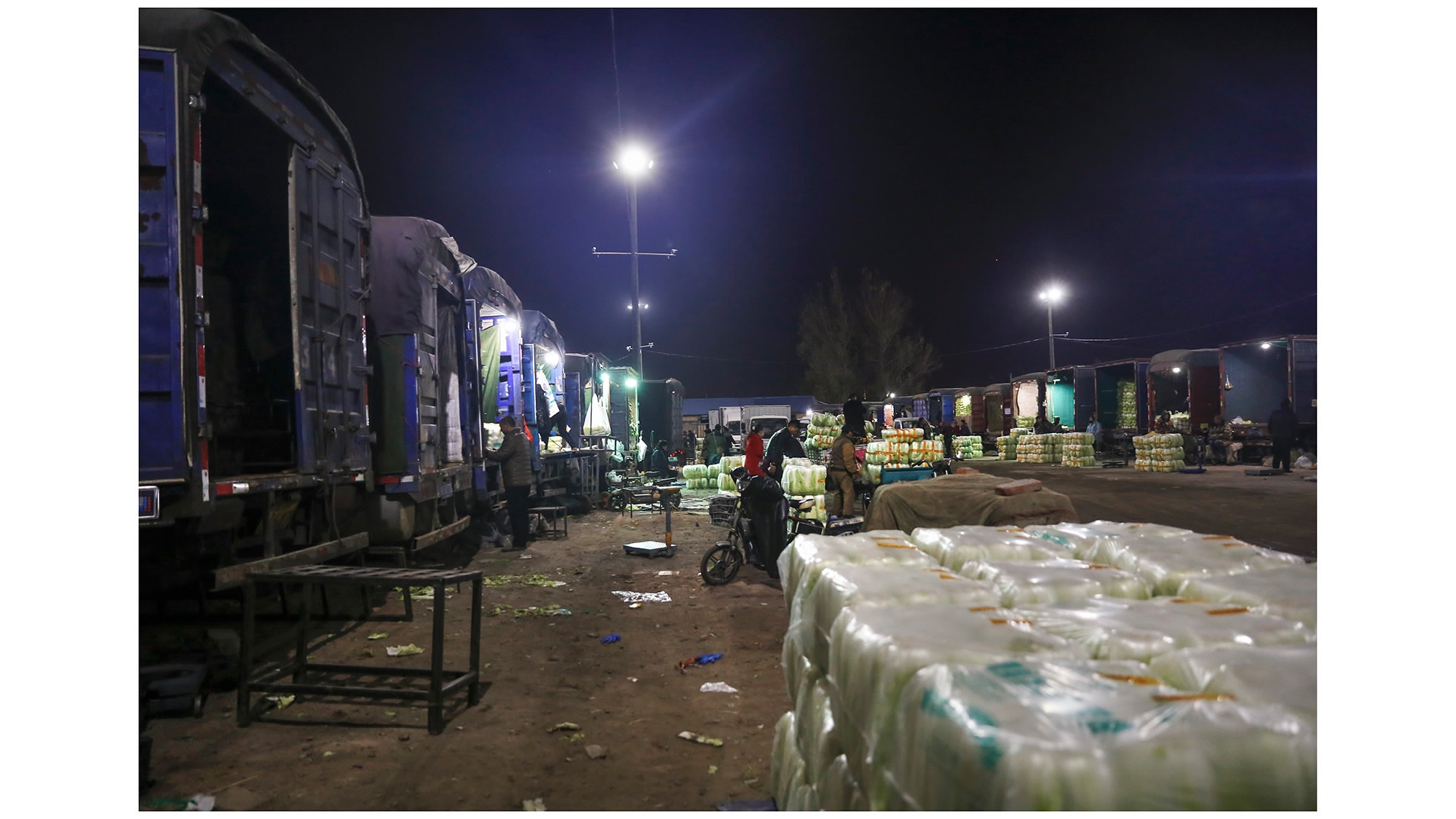
Xinfadi market, the largest vegetable wholesale market in Beijing
Xinfadi market, the largest vegetable wholesale market in Beijing
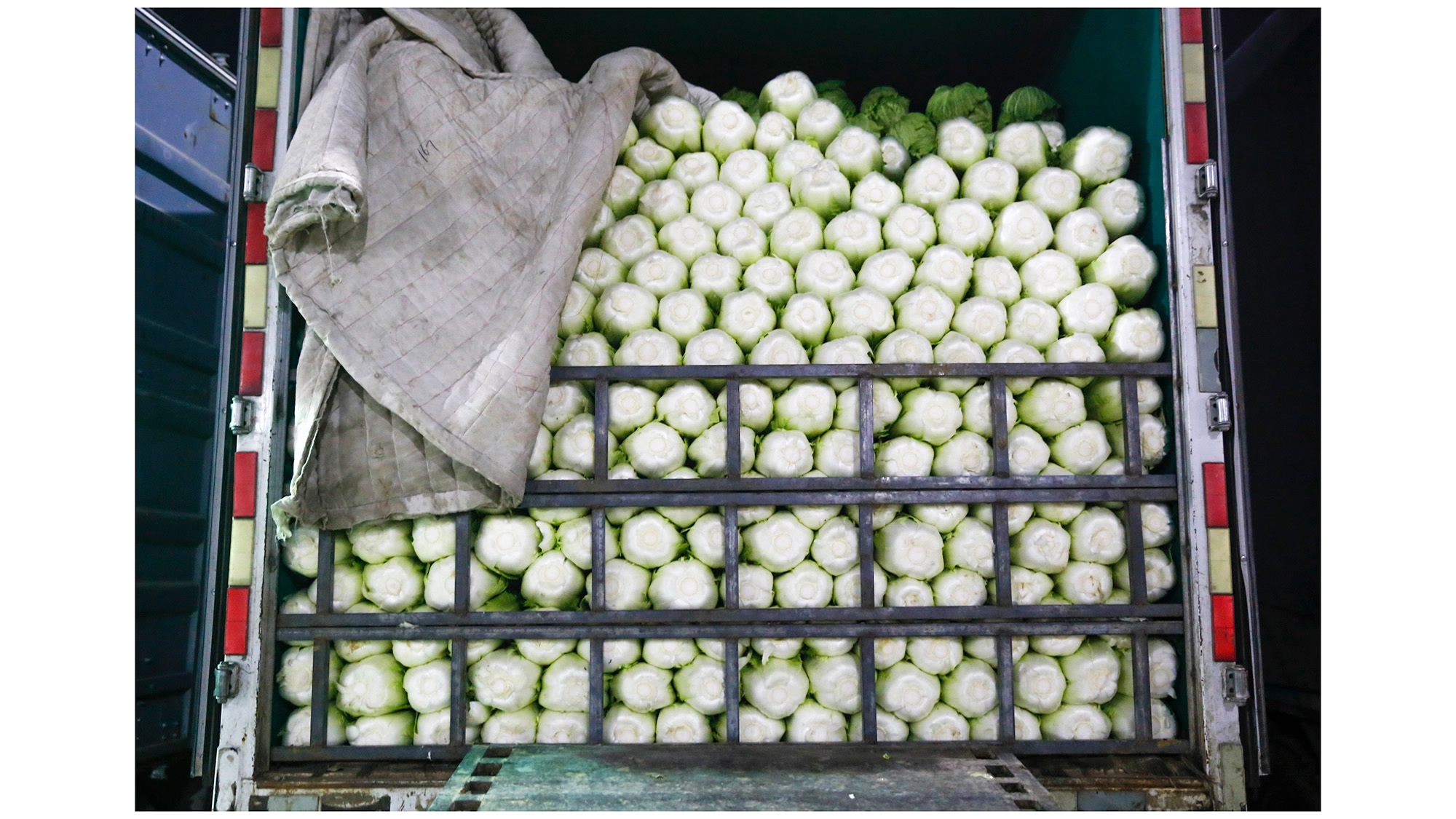
A carload of winter cabbages
A carload of winter cabbages
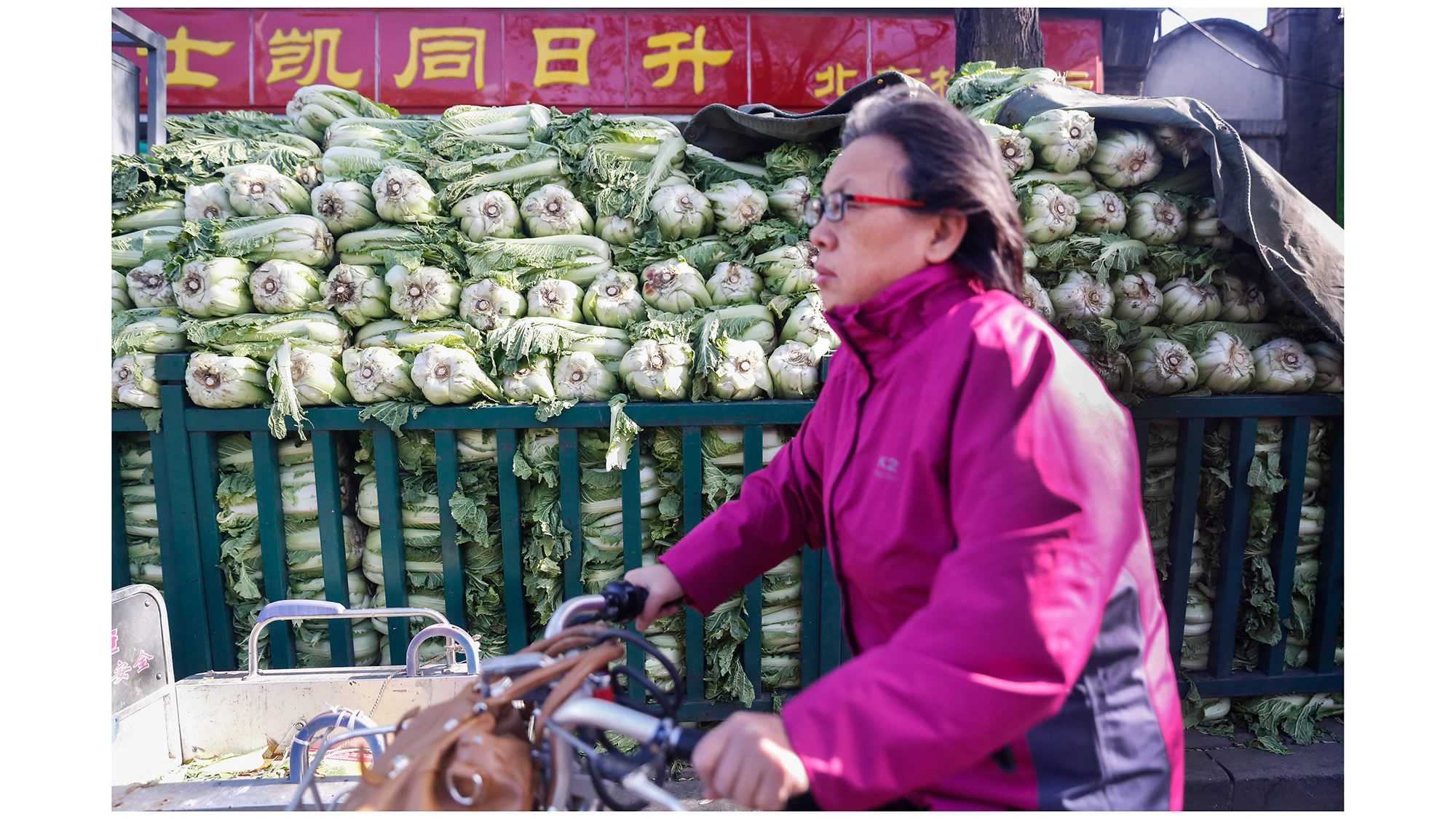
One of the trading spot of winter cabbage in Beixinqiao, Dongcheng District
One of the trading spot of winter cabbage in Beixinqiao, Dongcheng District
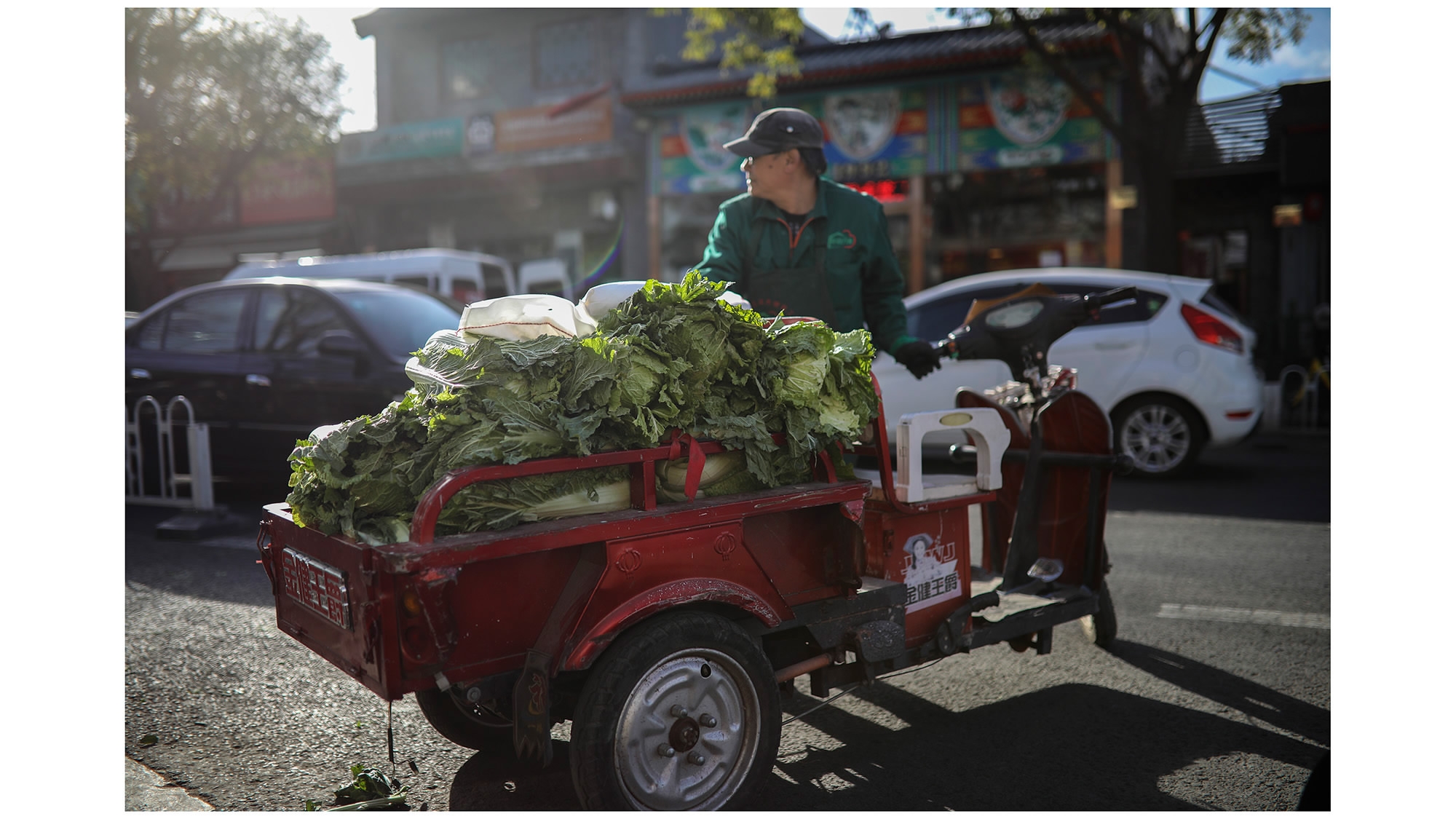
One of the workers from a local shopping mall is transporting a carload of cabbages to the home of a customer
One of the workers from a local shopping mall is transporting a carload of cabbages to the home of a customer
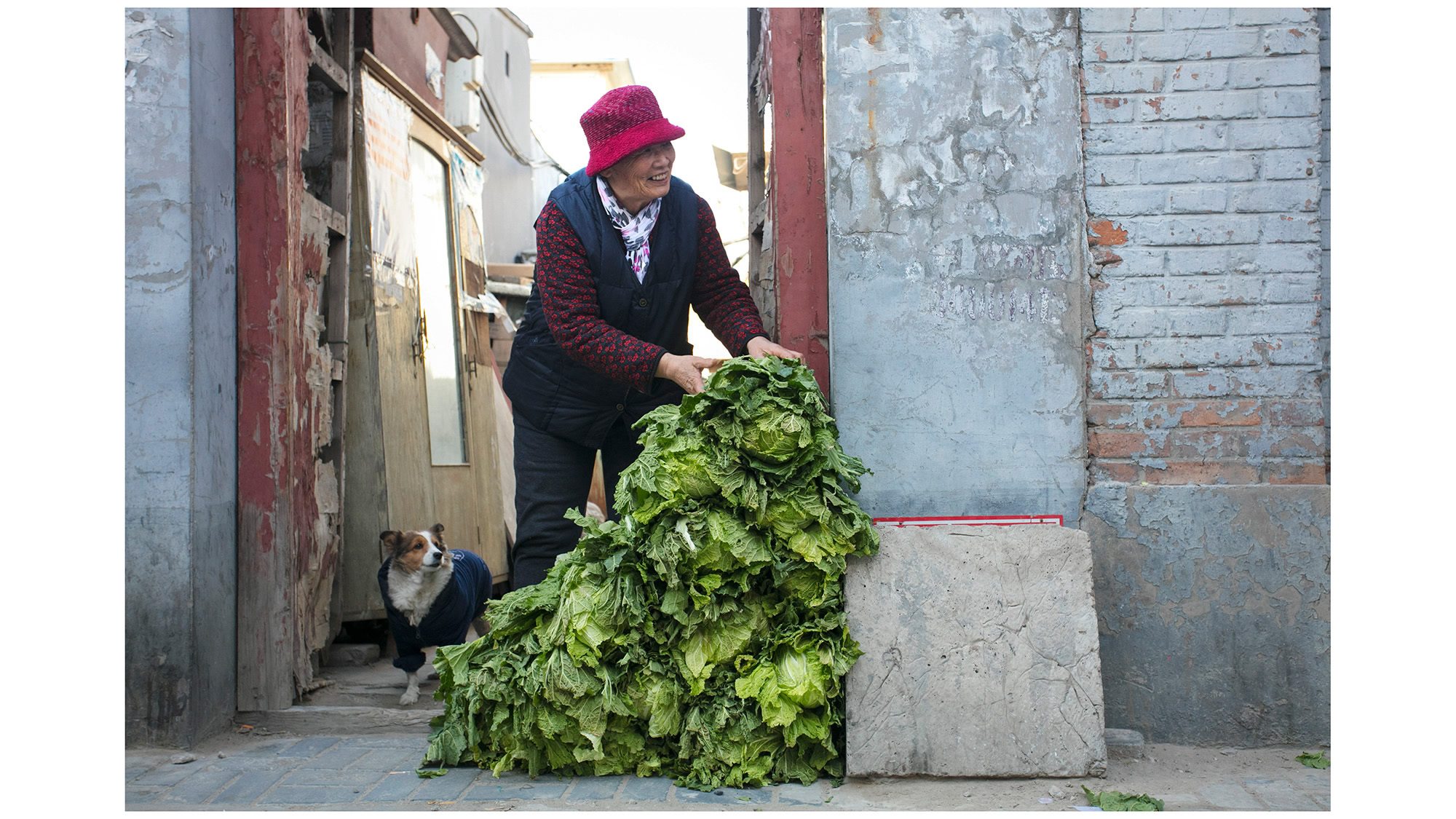
Grandma Lu and her dog standing by the gate with the piled-up cabbages
Grandma Lu and her dog standing by the gate with the piled-up cabbages
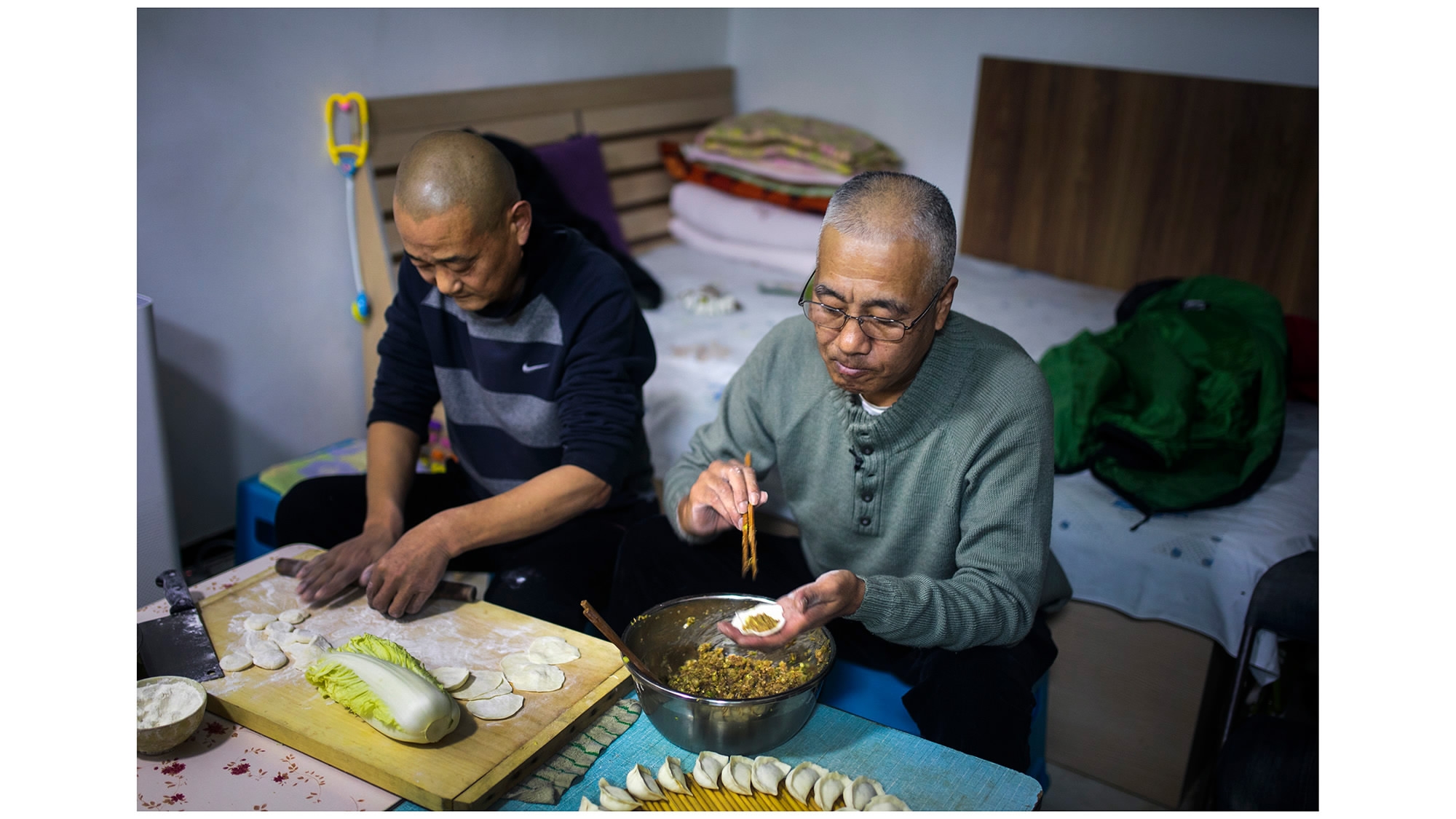
Feng Yongqing, a Beijinger is wrapping up the cabbage jiaozi with his families
Feng Yongqing, a Beijinger is wrapping up the cabbage jiaozi with his families

Feng Yongqing is preparing for the cabbage jiaozi
Feng Yongqing is preparing for the cabbage jiaozi
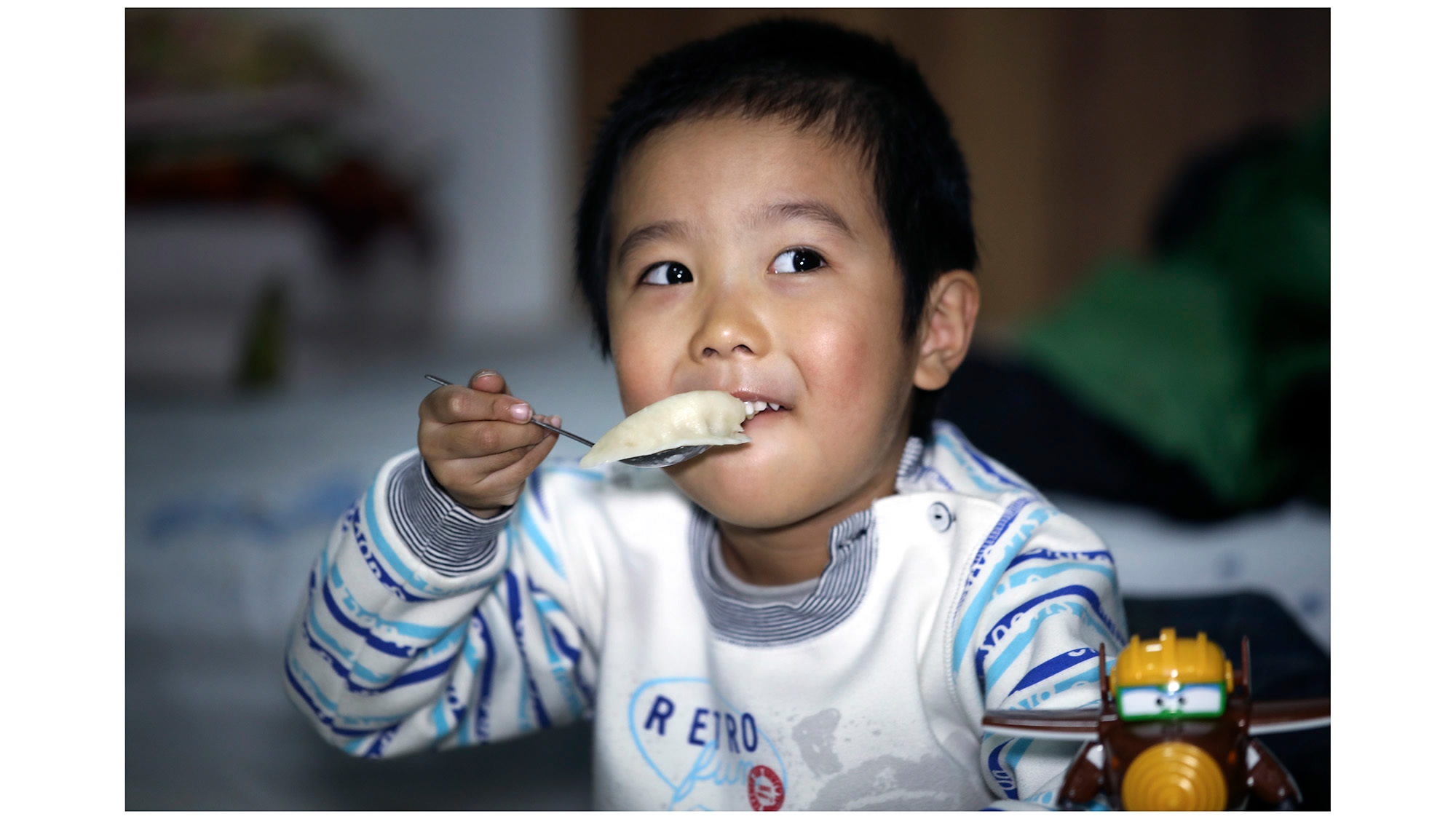
Duan Xintong is eating jiaozi
Duan Xintong is eating jiaozi
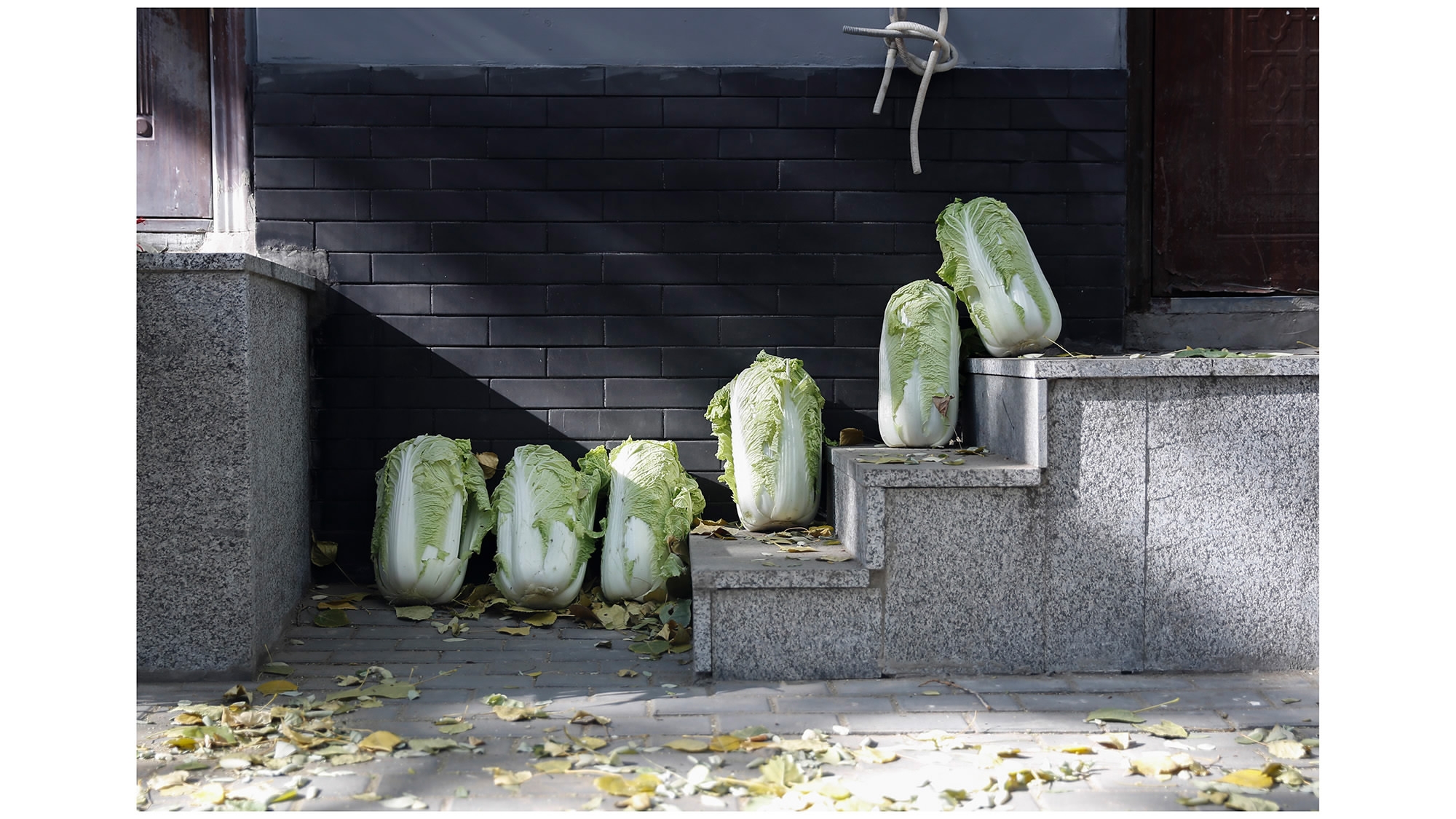
Winter cabbages are piled up at a corner of a street
Winter cabbages are piled up at a corner of a street
Northern Chinese Cabbage Complex
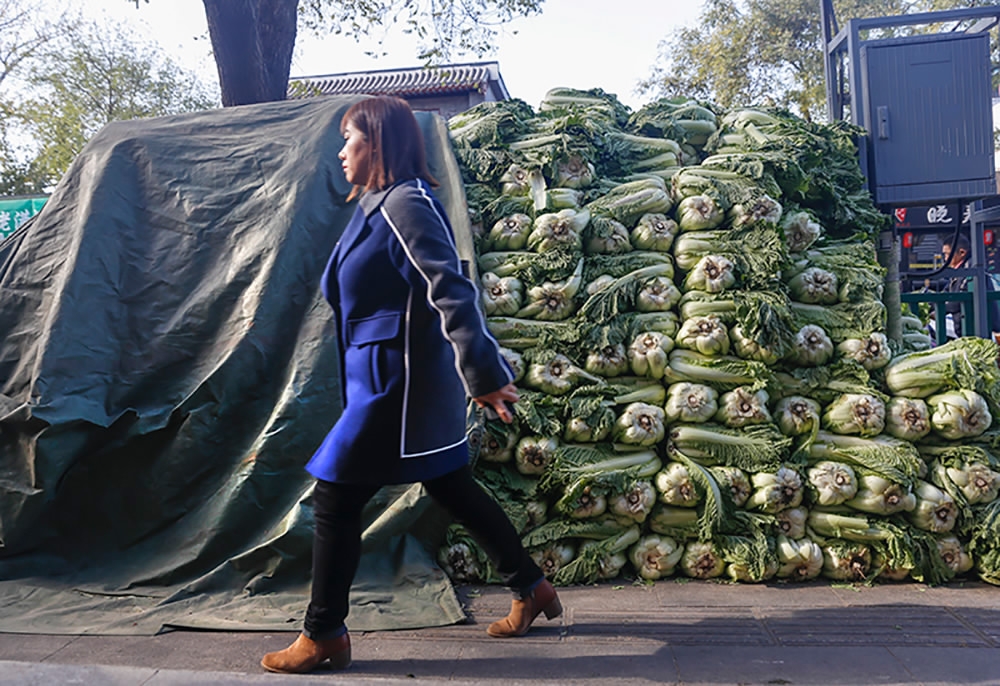
One of the trading spot of winter cabbages in Beixinqiao, Dongcheng District, Beijng /By CGTN
One of the trading spot of winter cabbages in Beixinqiao, Dongcheng District, Beijng /By CGTN
There is an old saying among the northerners in China: "Chinese cabbage is better than any other vegetables."
As winter comes, Dabaicai, or Chinese cabbage, are seen piled up in the sidewalks and alleys in Beijing. Storing up cabbage before the cold weather is an annual tradition for the northerners, especially after they’ve experienced the hungry winters of the 1950s and '60s.
Dabaicai sustained millions of Chinese then and the tradition continued. Chinese families will start hoarding cabbages in early November to stock up and eat it until February. Dabaicai are not only cheap, but also has a great taste in their memories.
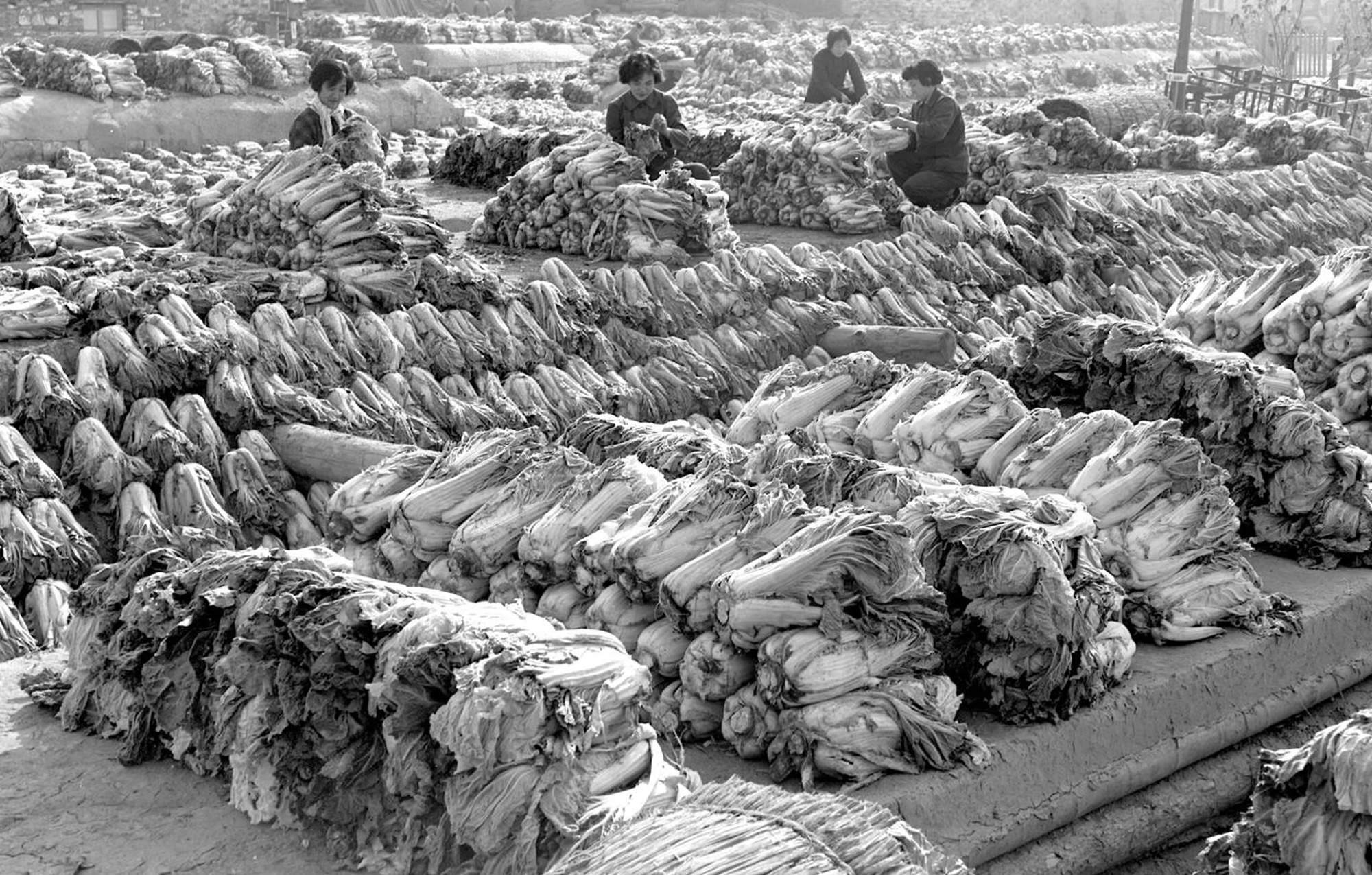
The Chinese cabbage heyday on Nov. 14, 1963, Beijing /Photo by Chen Shilin, Xinhua News Agency
The Chinese cabbage heyday on Nov. 14, 1963, Beijing /Photo by Chen Shilin, Xinhua News Agency
Wang Ruimei, a seller of Chinese cabbage at Dongcheng District in Beijing, sells over 5,000 kilos each day. On November 14, Wang said that they almost sold out all the Chinese cabbages they had stored.
"Bejingers still miss the taste. We sell at least 50,000 kilos of Chinese cabbage every year,” she said.
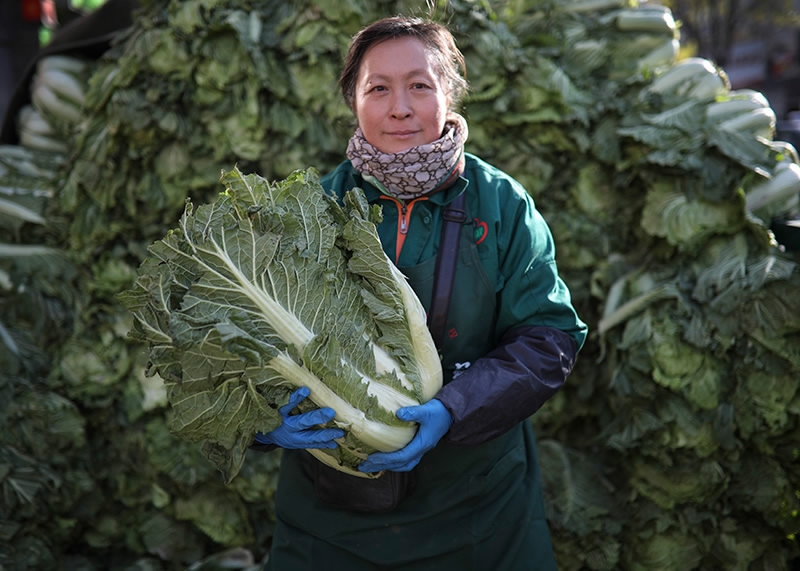
Wang Ruimei, a seller of Chinese cabbage at Dongcheng District in Beijing /By CGTN
Wang Ruimei, a seller of Chinese cabbage at Dongcheng District in Beijing /By CGTN
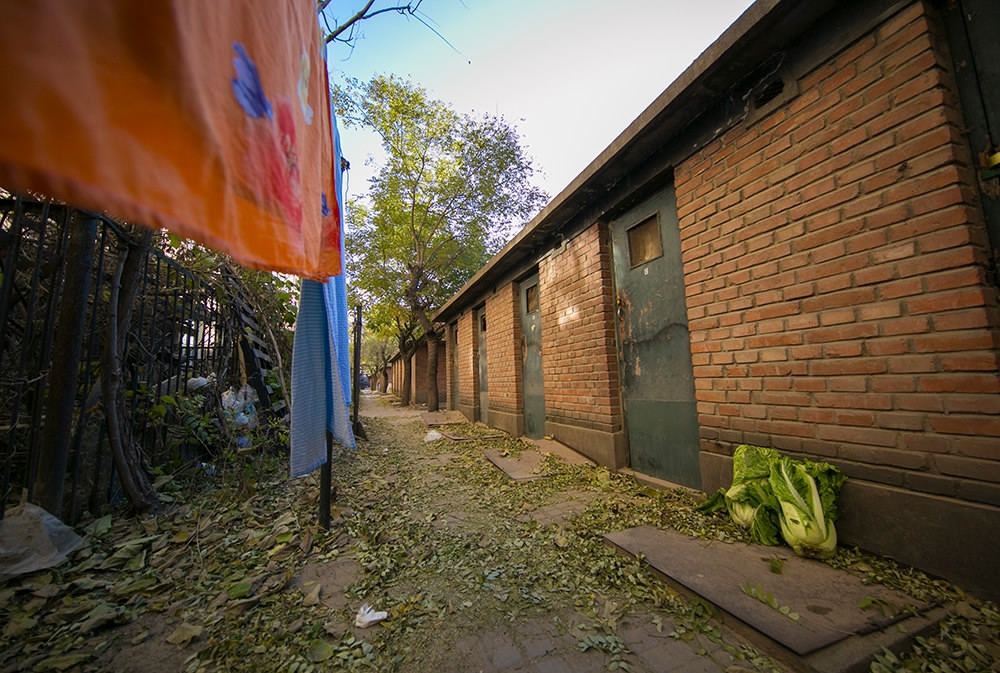
Cabbages at a corner of a street line up with the abandoned cellars which were used to store the winter cabbages. /By CGTN
Cabbages at a corner of a street line up with the abandoned cellars which were used to store the winter cabbages. /By CGTN
Stored winter cabbage is often sold from November 1 to 15. Although the price has increased almost 10 times over the years, people still line up to buy.
"Chinese winter cabbage is sweeter than other cabbages. The longer you store, the sweeter it will be," Wang said.
Chinese cabbage can be cooked in different ways – cabbage dumplings, cabbage and bean curd soup, steamed cabbage, cabbage in sour sauce and so on.

Different ways to cook winter cabbages /By CGTN
Different ways to cook winter cabbages /By CGTN
Mr. Feng, a 52-year-old Beijing local living in a hutong of Dongcheng District, is a big fan of cabbage dumplings – something that his entire family enjoys eating, including his three-year-old grandson.
"I have been eating Chinese cabbage since I was a child, but I still get excited every winter," he said.
Also, living in a nearby hutong, Grandma Lu has bought 15 Chinese cabbages this year. Originally from a village of east China's Shandong Province, Grandma Lu used to live a hard life. Eating corn dumplings wrapped in Chinese cabbage is now a simple pleasure for her during the cold weather.
"Grinded corn and soybeans are mixed together, wrapped with cabbage and then put on a steaming pot. Very delicious. And that’s happiness," Grandma Lu recalled.
While Grandma Lu arranges her cabbage, a young couple in a nearby vegetable store is piling up hundreds of winter cabbages.
Zhou Rui started selling Chinese cabbage since he graduated from junior high school; now he runs a vegetable shop with his wife. “We buy about 500 to 1,000 kilos of cabbage from the wholesale market each trip and I have gone five times this year,” he said.
Originally from South China, Zhou is not crazy about winter cabbage. Yet after selling them for over 15 years, he said he often dreams about it now. “Sometimes I was riding a tricycle to deliver cabbage; sometimes it’s at the wholesale market where cabbages are everywhere,” Zhou Rui grinned.
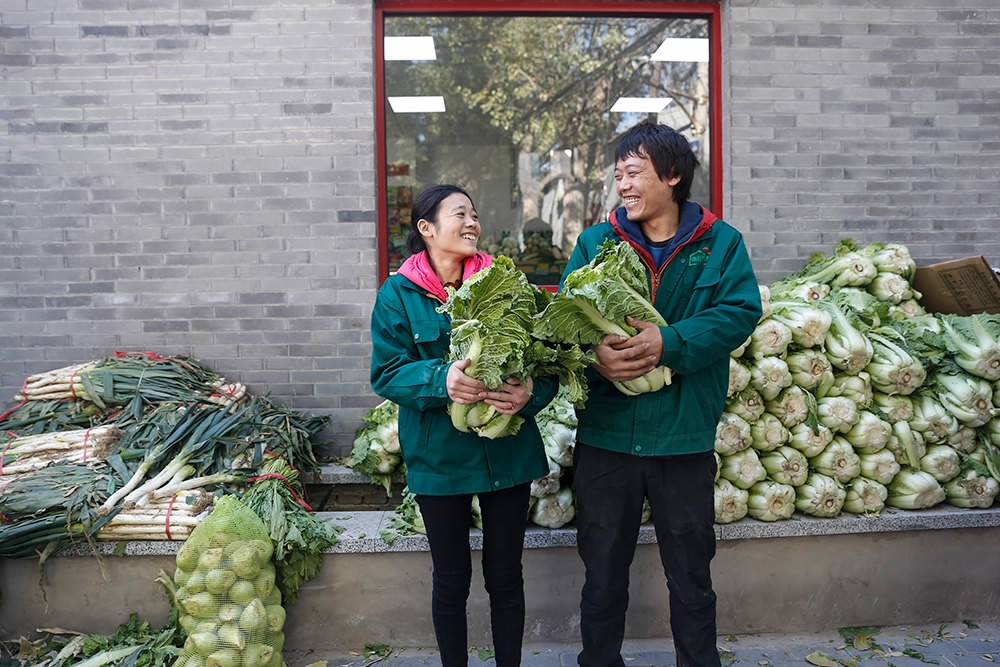
Zhou Rui and his wife /By CGTN
Zhou Rui and his wife /By CGTN
Chinese cabbage sales, however, are declining. According to Zhou Rui, in the most profitable year, his family sold about 15,000 kilos of cabbage. This year, they only sold less than 5,000 kilos.
The vegetable wholesale market where Zhou Rui often go to are called Xinfadi market. Located in Beijing’s southern suburb, Xinfadi is the largest vegetable wholesale market in Beijing. Dozens of sellers stay there overnight every day.
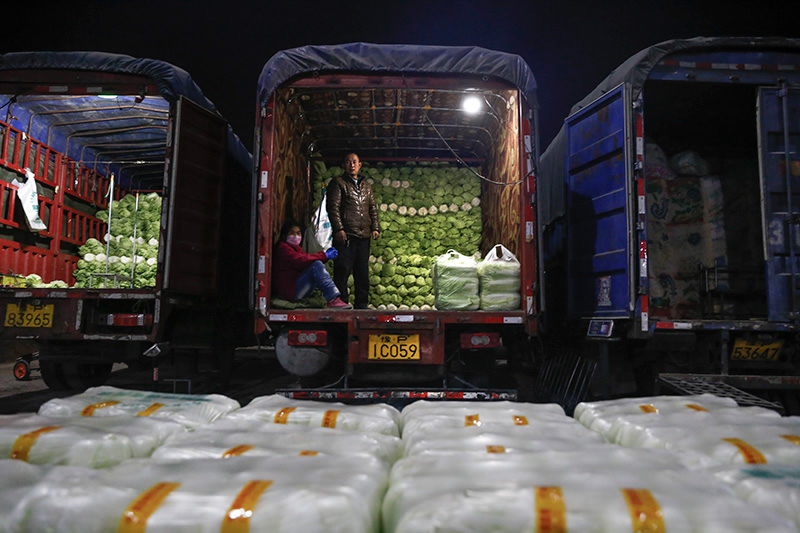
Yang Haiqing and his wife Cuixia are working in the wholesale market in Xinfadi late at night. /By CGTN
Yang Haiqing and his wife Cuixia are working in the wholesale market in Xinfadi late at night. /By CGTN
Yang Haiqing, one of the wholesalers, just wrapped himself in thick cotton coat and leans on his truck fully loaded with cabbage. Yang purchases over 100,000 kilos of cabbage from farmers each year for wholesaling in Xinfadi. “Many buyers often come in at midnight so that they can stock up their stores for selling in the morning next day.”
For the northerners, the cabbage hoarding is not just about food. For the old people, it brings back the memories of a time when the vegetable meant surviving the harsh winter season.

